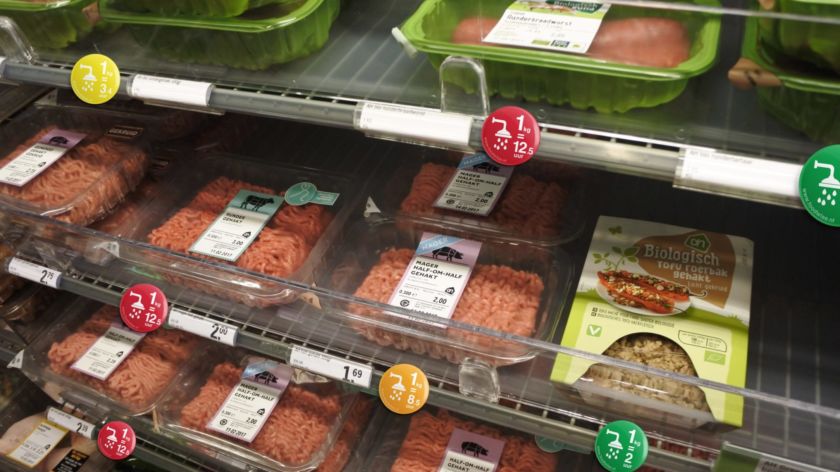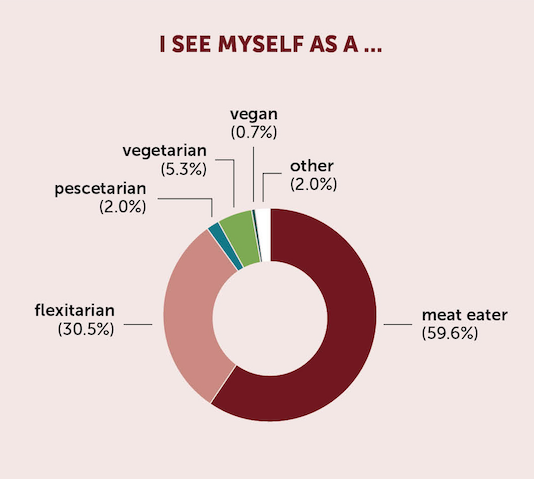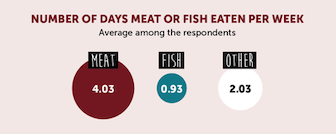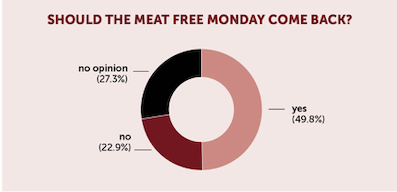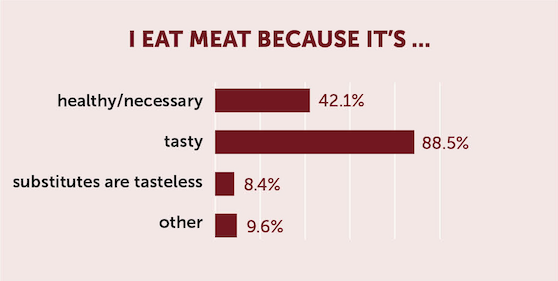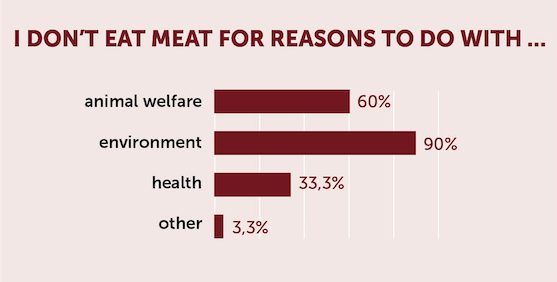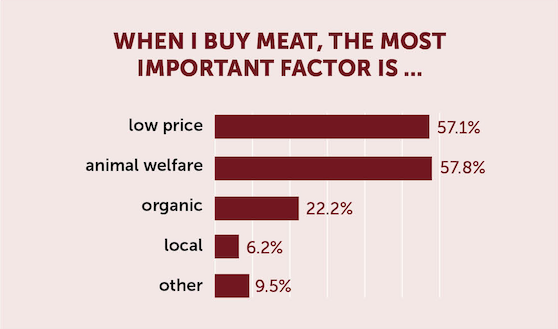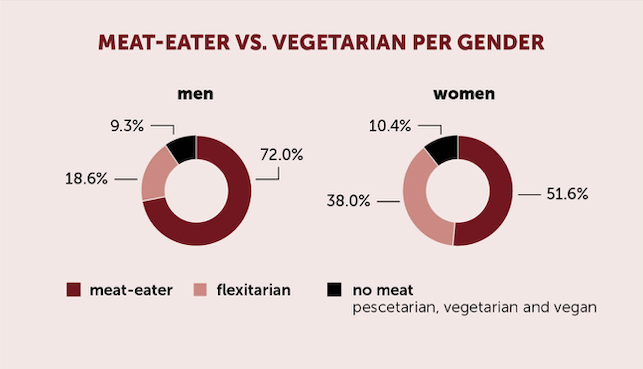Students still eat quite a lot of meat
The majority of Nijmegen students eat meat on a regular basis, as apparent from a VOX survey. Less than 10% are vegetarian or vegan. Nevertheless, half of the respondents voted for a return of Meat Free Monday on Campus.
Eating meat hasn’t yet had its day, according to a survey among a little under three hundred students on Campus. 60% of the respondents see themselves as meat eaters. 30% is ‘flexitarian’ and only eat meat occasionally. On average, Nijmegen students eat meat four times a week, fish once a week, and something else on the other days. In this respect, Nijmegen students score close to the national average of 4.8 meat days registered by the Stichting Natuur en Milieu Vegamonitor in 2017.
Nevertheless, things seem to be changing: a large majority (55%) reports eating less meat than three years ago. In this respect, Nijmegen students are breaking with the national trend. Over the past years, the Dutch have remained constant in their meat consumption: 76.6 kilogram per person. These were the results of a study commissioned by the Dutch animal welfare organisation Wakker Dier and conducted last autumn by Wageningen University & Research.
Interestingly enough, twice as many students voted for a return of Meat Free Monday at the Refter compared to those students who voted against the idea. Facilities and Services actually cancelled meat-free Monday following the Refter’s recent renovation.
Healthy
Students who eat meat do so mostly because it tastes good (nearly 90%). Forty percent believe meat to be essential to a healthy diet. Animal welfare and lowest price are the most important aspects respondents consider when buying meat. Nearly one quarter buys only organic products.
The 10% of vegetarians, vegans, and pescetarians (people who eat fish but no meat from other animals) who refrain from meat consumption do so primarily because of the environment (90%) and animal welfare (60%). One in three also name health as a reason.
Women
The survey revealed a number of striking gender differences. For example, men are more likely to see themselves as meat eaters (72%) than women (52%), and they’re less enthusiastic about Meat Free Monday (39% vs 57%). Also, when buying meat, women are more concerned with animal welfare, while men tend to focus on lowest price.
It should be noted that gender distribution differed across faculties. The Law Faculty was overrepresented (35.1%) among women, and the Science Faculty among men (29.1%). In other words, the observed gender differences might theoretically also be explained by attitudinal differences among faculties rather than gender.
Vox collected its survey data among students at the various canteens across Campus: the Refter, Het Gerecht, and the canteens of the Science Faculty and the Faculty of Medical Sciences. In total, 181 women and 117 men took part in the survey.
The new edition of Vox is out, and focuses on animals.
